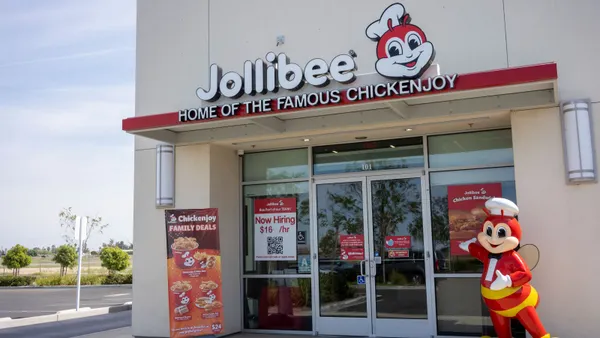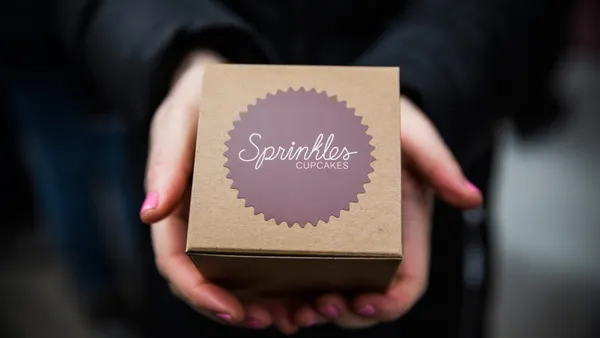Dive Brief:
- WeWork has officially launched its Food Labs New York flagship location, about a year after announcing the food-focused co-working space and innovation space. The concept is specifically designed for those working in the foodservice space and is aimed at promoting research and development and collaboration opportunities.
- According to the company, since its launch, the Food Labs program has worked with more than 400 businesses at its New York, San Francisco and Austin locations.
- WeWork Food Labs provides participating companies with custom programming in addition to collaborative workspace, according to the press release.
Dive Insight:
WeWork Food Labs is dedicated to contributing equity investments to startups for the purpose of developing "innovative approaches and technologies to transform the food industry," according to the release. Such a space, and ambitious objective, makes plenty of sense right now, as the restaurant industry navigates swift changes and intense competition.
Much of that competition comes from smaller concepts that have adopted a tech-forward, startup mindset. Sweetgreen is one such example that has caught the attention of enough investors to earn a unicorn valuation. Plenty of larger players, including Panera, have acknowledged this growing competitive set.
In the company release, WeWork Executive Chairman Marcelo Claure called Food Labs a "workplace solution" that allows members to innovate and collaborate. A number of restaurants have taken advantage so far, including Zoku Sushi, which used the space to scale its delivery service, and Junzi Kitchen, which partnered with Zuul Kitchens to launch a delivery-only launch kitchen.
Perhaps therein lies the biggest opportunity. The solution Claure describes comes from the answer of how to make a restaurant concept more accessible, be it through delivery or ghost kitchens or outposts or something else. Such a shared workspace facilitates connections like the one between Junzi and Zuul so that burgeoning entrepreneurs don't have to go it alone. This is especially beneficial for restaurateurs whose core competency doesn't include technology, but are in need of a tech strategy to survive nonetheless.
As such, this type of space could even level the playing field for smaller concepts. As McDonald's and other restaurant giants expand their rosters to include full technology teams (and Silicon Valley-based Tech Labs), smaller concepts that pay a membership fee starting at $300 a month could have similar opportunities through this space.
Still, while such a space is a good idea on paper, WeWork has much to prove. The company continues to recover from a much-publicized failed IPO last year and shut down its Spacious business less than five months after making that acquisition, which was its first entry into the restaurant space. It's also worth noting that this idea has been attempted before. In 2018, Pilotworks, a Brooklyn-based kitchen space that supported 175 food vendors, shut down.










